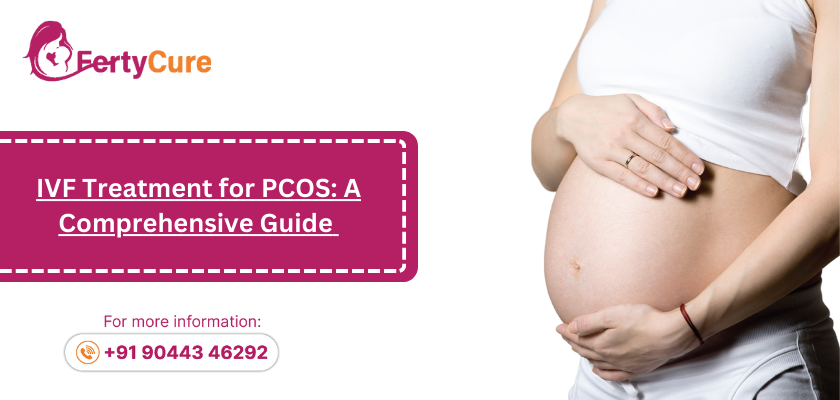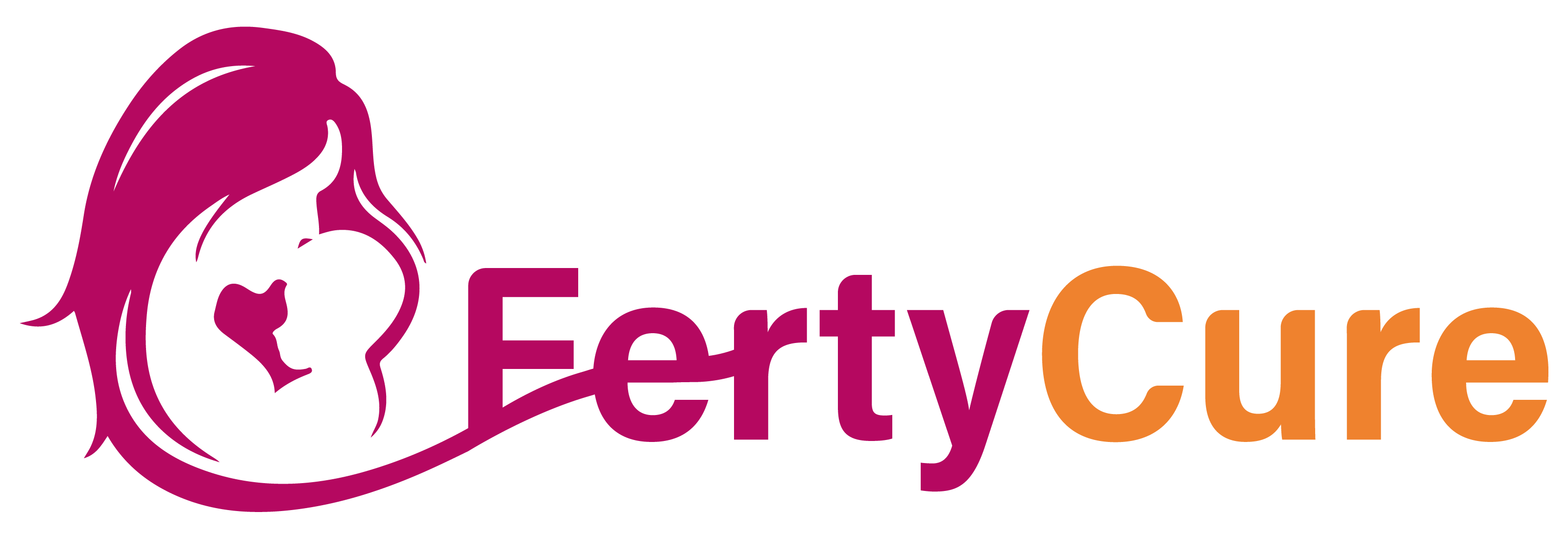Table of Contents
IVF Treatment for PCOS: A Comprehensive Guide
Polycystic Ovary Syndrome (PCOS) is a prevalent endocrine disorder that affects many women of reproductive age. One of the significant challenges that women with PCOS face is infertility. In recent years, IVF treatment for PCOS has emerged as a promising solution who are struggling to conceive. This comprehensive guide aims to provide an in-depth understanding of IVF treatment for PCOS, its procedures, benefits, considerations, and more.

What is PCOS?

Polycystic Ovary Syndrome, commonly known as PCOS, is a hormonal disorder that affects the ovaries and leads to enlarged ovaries containing small cysts. Women with PCOS often experience irregular menstrual cycles, excessive androgen levels, and multiple small follicles on their ovaries. This hormonal imbalance can result in various health issues, including infertility.
How does PCOS affect fertility?
PCOS disrupts the normal ovulation process, making it challenging for women to release mature eggs regularly. Irregular or absent ovulation is a primary factor contributing to infertility in women with PCOS. Additionally, the high levels of androgens can interfere with the egg maturation process, further reducing the chances of conception.
Related Article: Pregnancy with PCOS – Comprehensive Guide & Solutions
Introduction to IVF Treatment
What is IVF?

In Vitro Fertilization (IVF) is an assisted reproductive technology that involves combining an egg and sperm outside the body, in a laboratory dish, to create an embryo. The subsequent step involves the placement of this embryo into the uterine cavity of the woman, with the optimistic aspiration that it will attach itself and progress into a successful and robust pregnancy.
How does IVF work?
The IVF process generally involves several steps:
Ovulation induction:
PCOS patients may require hormonal medications to stimulate the ovaries and encourage the development of multiple follicles.
Egg retrieval:
Once the follicles are mature, a minor surgical procedure is performed to retrieve the eggs from the ovaries using a thin needle.
Sperm collection:
A specimen of sperm is obtained either from the male partner or a designated sperm contributor.
Fertilization and embryo culture:
The eggs and sperm are combined in a laboratory dish for fertilization. The ensuing embryos are nurtured and under observation for a span of several days.
Embryos Transfer :
Subsequently, a choice is made to transfer one or more robust embryos into the uterine cavity of the woman
Luteal phase support:
Hormonal medications are prescribed to support the uterine lining and increase the chances of embryo implantation.
Why is IVF considered for PCOS patients?
IVF offers a solution for PCOS patients who struggle with irregular ovulation. By closely monitoring the ovaries and controlling the ovulation induction process, IVF increases the chances of successful egg retrieval and fertilization. Moreover, IVF allows for the selection of the healthiest embryos, increasing the likelihood of a successful pregnancy.
IVF Procedure: Step by Step
Ovulation induction
For PCOS patients, ovulation induction involves administering hormonal medications that stimulate the ovaries to produce multiple follicles containing eggs. This process helps regulate the ovulation cycle and enhances the chances of successful egg retrieval.
Egg retrieval
Once the follicles are mature, a minor surgical procedure called egg retrieval or follicular aspiration is performed. A thin needle is inserted into the ovaries to collect the mature eggs. This procedure is usually performed under mild anesthesia.
Sperm collection
A specimen of sperm is obtained either from the male companion or a designated sperm contributor.\. The sperm is then prepared in the laboratory to ensure its optimal quality and motility.
Fertilization and embryo culture
The collected eggs and prepared sperm are combined in a laboratory dish for fertilization.
The ensuing embryos are nurtured and under observation for a span of several days.
Embryos Transfer:
Subsequently, a choice is made to transfer one or more robust embryos into the uterine cavity of the woman.
Luteal phase support
After the embryo transfer, hormonal medications are prescribed to support the uterine lining and create a favorable environment for embryo implantation. These medications are usually continued for a few weeks after the transfer.
Related Article: 5 Hidden PCOS Symptoms: Do You Have Them?
Advantages of IVF for PCOS Patients
Overcoming irregular ovulation
IVF provides a controlled and closely monitored approach to ovulation induction for PCOS patients. This ensures that eggs are retrieved at the optimal stage of development, increasing the chances of successful fertilization and pregnancy.
Higher success rates
The selection of the healthiest embryos for transfer in IVF significantly improves the success rates for PCOS patients. By bypassing the irregular ovulation cycle, IVF offers a more predictable and effective method of achieving pregnancy.
Mitigating pregnancy complications
IVF allows healthcare professionals to closely monitor the development of embryos and the progress of the pregnancy. This monitoring helps identify and manage any potential complications, ensuring a healthier pregnancy for PCOS patients.
Related Article: Exclusive: One Simple Trick for PCOS Management!
Considerations IVF Treatment for PCOS Patients
Health assessment

Before undergoing IVF, PCOS patients undergo a comprehensive health assessment. This assessment helps determine the appropriate treatment plan and identify any underlying health issues that could affect the IVF process.
Medication adjustments
The hormonal medications used for ovulation induction may need to be adjusted for PCOS patients to achieve the best results. The dosage and timing of these medications are tailored to the individual’s needs.
Monitoring and surveillance
PCOS patients undergoing IVF require regular monitoring and surveillance to track the development of follicles, eggs, and embryos. This ensures that the treatment plan can be adjusted as needed for optimal outcomes.
Related Article: 10 Shocking PCOS Facts You Don’t Know
Lifestyle Modifications for Enhanced IVF Success
Diet and exercise

Maintaining a healthy lifestyle through a balanced diet and regular exercise can positively impact IVF success. Weight management is particularly important for PCOS patients, as excess weight can exacerbate hormonal imbalances.

Stress management

Stress can negatively affect fertility and the success of IVF. Engaging in relaxation techniques, meditation, and counseling can help PCOS patients manage stress levels during the IVF journey.
Weight control

Maintaining a healthy weight is essential for PCOS patients undergoing IVF. Weight loss, if necessary, can improve hormonal balance and increase the chances of successful ovulation and conception.
Related Article: PCOS and Infertility: Debunking Common Myths in 2023
Potential Risks and Side Effects
Ovarian hyperstimulation syndrome (OHSS)
Ovarian hyperstimulation syndrome is a potential complication of IVF that can lead to enlarged ovaries, fluid retention, and discomfort. PCOS patients may be at a higher risk of developing OHSS due to their increased sensitivity to hormonal medications.
Multiple pregnancies
PCOS patients undergoing IVF have a slightly higher risk of multiple pregnancies due to the possibility of multiple embryos being transferred. Multiple pregnancies carry additional medical risks and considerations.
Emotional impact
The emotional toll of infertility and IVF treatment for PCOS can be significant. PCOS patients may experience feelings of stress, anxiety, and disappointment throughout the process. Exploring solace through emotional assistance and seeking guidance through counseling can prove to be advantageous.
The Role of Genetics in IVF Treatment for PCOS
Genetic predisposition
Genetics plays a role in both PCOS and the success of IVF treatment. PCOS has a genetic component, and understanding genetic factors can help tailor the treatment approach to an individual’s specific needs.
Impact on treatment approach
Genetic information can influence the choice of medications, dosage adjustments, and other treatment considerations. Personalized medicine, guided by genetic insights, is an emerging trend in fertility treatment.
Alternative Fertility Treatments for PCOS
Ovulation-stimulating medications
Before considering IVF, PCOS patients may explore ovulation-stimulating medications such as clomiphene citrate or letrozole. These medications can help regulate the ovulation cycle and improve the chances of conception.
Lifestyle interventions
Healthy lifestyle changes, including weight management, dietary modifications, and stress reduction, can have a positive impact on ovulation and fertility for PCOS patients.
Surgical interventions
In some cases, surgical procedures such as ovarian drilling may be considered to improve ovulation in PCOS patients. However, these interventions are usually reserved for cases where other treatments have been unsuccessful.
Success Stories: Real-life Experiences
Hearing from women who have successfully undergone IVF treatment for PCOS can provide hope and inspiration to those considering the same path. Real-life testimonials offer insights into the challenges, emotions, and triumphs of the IVF journey.
Financial Considerations and Insurance Coverage
Cost of IVF treatment
IVF can be financially demanding, and PCOS patients need to consider the costs of medications, procedures, and monitoring. Exploring different pricing options and financing plans is essential.
Insurance options
Some insurance plans may offer partial coverage for fertility treatments, including IVF. PCOS patients should inquire about their insurance coverage and explore potential reimbursement options.
Financing options
Fertility clinics often provide financing options to help alleviate the financial burden of IVF treatment. Exploring these options can make fertility treatment more accessible to PCOS patients.
Choosing the Right Fertility Clinic
Reputation and success rates
Selecting a reputable fertility clinic with a track record of successful outcomes is crucial for PCOS patients seeking IVF treatment. Researching clinic success rates and patient reviews can guide the decision-making process.
Expertise in PCOS treatment
Choosing a fertility clinic with experience in treating PCOS patients is important. These clinics understand the unique challenges and considerations associated with PCOS-related infertility.
Patient-centered care
Fertility clinics that prioritize patient-centered care provide comprehensive support, counseling, and education throughout the IVF journey. PCOS patients should seek clinics that offer personalized attention and guidance.
Emotional and Psychological Support
Coping with infertility stress
Infertility and IVF treatment for PCOS can take an emotional toll. Seeking emotional support from friends, family, support groups, or mental health professionals can help manage stress and anxiety.
Support groups and counseling
Participating in support groups or undergoing counseling can provide a safe space for PCOS patients to share their experiences, receive guidance, and connect with others facing similar challenges.
Future Trends in IVF Treatment for PCOS
Advances in reproductive technology
The field of reproductive technology is continually evolving, with ongoing advancements in IVF procedures, embryo selection techniques, and genetic testing. These advancements hold promise for improving IVF treatment for PCOS patients.
Personalized treatment approaches
As genetic research expands, personalized treatment approaches tailored to an individual’s genetic profile are becoming more feasible. PCOS patients may benefit from treatment plans that consider their unique genetic makeup.
Conclusion
IVF treatment offers a comprehensive solution for PCOS patients struggling with infertility. By addressing the challenges of irregular ovulation and hormonal imbalances, IVF provides a pathway to achieving pregnancy and fulfilling the dream of parenthood. The combination of medical expertise, emotional support, and advances in reproductive technology makes IVF treatment for PCOS a promising option.
FAQs (Frequently Asked Questions)
Is IVF the only option for PCOS-related infertility?
While IVF is a popular option, there are alternative treatments such as ovulation-stimulating medications and lifestyle interventions that PCOS patients can explore. The choice of treatment depends on individual circumstances and preferences.
Are there any age restrictions for undergoing IVF with PCOS?
There is no strict age limit for undergoing IVF with PCOS. However, the age and overall health of the individual can impact the success of the treatment. A healthcare provider can guide patients on the best course of action based on their specific situation.
Can IVF increase the risk of multiple pregnancies for PCOS patients?
Yes, there is a slightly higher risk of multiple pregnancies with IVF, especially for PCOS patients who tend to produce a larger number of eggs. Healthcare professionals closely monitor the number of embryos transferred to minimize this risk.
Does insurance cover the cost of IVF for PCOS patients?
Some insurance plans may offer partial coverage for fertility treatments, including IVF. PCOS patients should contact their insurance provider to inquire about coverage options and reimbursement.
How can emotional support be beneficial during the IVF journey?
Emotional support from friends, family, support groups, or mental health professionals can help PCOS patients cope with the stress and emotions associated with infertility and IVF treatment. It provides a safe outlet for expressing feelings and receiving guidance.
